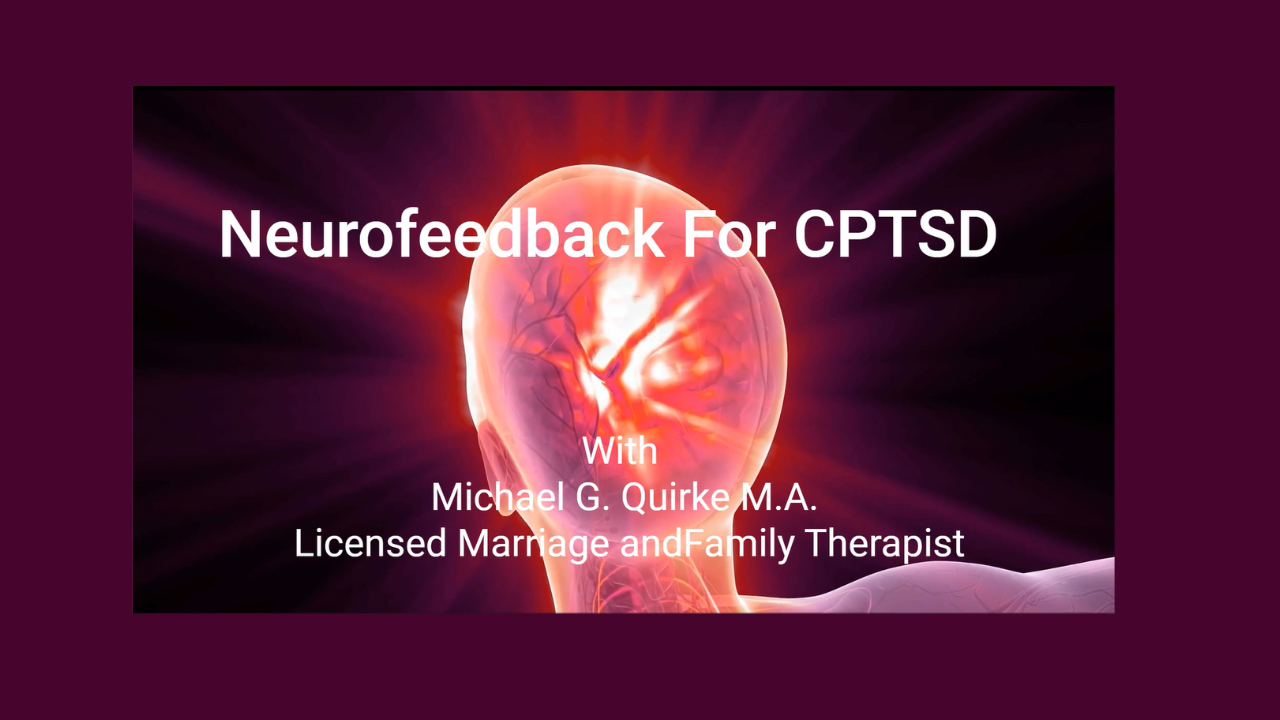Neurofeedback For Depression: 3 Reasons to Seriously Consider It
Neurofeedback For Depression: Because It’s Natural.
 Like many, you want a natural alternative to psychiatric drugs. You want to feel your best, and you are health conscious. You care about your physical health and are wary of taking pills that might end up hurting your body. Neurofeedback for depression might very well provide you with the relief you seek.
Like many, you want a natural alternative to psychiatric drugs. You want to feel your best, and you are health conscious. You care about your physical health and are wary of taking pills that might end up hurting your body. Neurofeedback for depression might very well provide you with the relief you seek.
Neurofeedback is an innovative technique that enables individuals to achieve self-regulation of brain functions. By using real-time displays of brain activity, clients can learn to modulate their brainwaves, leading to enhanced emotional regulation and mental well-being. For instance, a person suffering from depression might learn to increase their alpha brainwaves, which are associated with relaxation and calmness. This process helps to naturally alleviate symptoms of depression, offering a holistic approach to mental health.
Despite the common use of antidepressant drugs, I have noticed that among clients in my clinical practice more and more people are becoming aware of the negative sides to taking anti depressant drugs.
Recent studies indicate that neurofeedback can lead to significant improvements in mood and emotional stability. For example, a clinical trial involving participants with depression showed that those who underwent neurofeedback training reported a 30% reduction in depressive symptoms after several sessions. This evidence highlights the effectiveness of neurofeedback as a natural treatment option, as many participants expressed satisfaction with the process, citing a newfound ability to manage their emotions without the need for medication.
Through a combination of personal experience and research, they have learned that quite often the cost of taking psychiatric drugs outweighs their benefits.
Over the last few years, the media has covered a range of anti-depressant drug side effects such as emotional numbing, neurological symptoms, sexual problems. The physcial side effects include nausea, fatigue, weight gain, involuntary movements, and spasms. At their most dangerous, antidepressant drugs can trigger violence, suicidal thoughts and worsening of depression symptoms.
It’s essential to understand that the negative side effects of antidepressants often overshadow their benefits. Many clients I work with share stories of experiencing significant weight gain and emotional detachment from their loved ones after starting on these medications. In stark contrast, neurofeedback promotes positive changes in brain function without the daunting side effects, making it a compelling alternative for those seeking mental health treatments.
Some clients fear having to face down fierce withdrawal symptoms when they attempt to stop antidepressant drug use. As more people have taken antidepressant drugs, the general awareness of “discontinuation syndrome”, or withdrawal has increased. Symptoms of discontinuation syndrome can include dizziness, loss of coordination, fatigue, tingling, burning, blurred vision,”brain zaps” and insomnia. There may also be nausea or diarrhea, flu-like symptoms, irritability, anxiety, and crying spells.
If You’re Like Many Clients, You Are Seeking Effective, Natural Treatments For Depression
You want depression treatment that won’t force side effects on you.
Furthermore, neurofeedback empowers individuals to take charge of their mental health journey. Unlike conventional treatments, which often leave patients feeling like passive recipients of care, neurofeedback involves active participation. Clients learn to recognize their brain activity patterns and develop strategies for self-regulation, leading to a sense of mastery over their condition. This empowerment can be a significant morale booster, helping individuals break free from the cycle of depression.
The first, most common hesitation that clients state is the lack of effectiveness of many drugs. Not only are they not as effective as we would like them to be but they may indeed make some depression worse. In fact, a recent study shows that patients who take antidepressant drugs are at double the risk of depression relapse when compared to placebo.
But the great thing about neurofeedback for depression is there are few, if any negative side effects. Neurofeedback for depression is a natural process in which you train your brain to support your positive mood.
Many individuals also appreciate that neurofeedback allows for a customizable treatment plan. Each person’s brain is unique, and neurofeedback takes this into account by providing a tailored approach that focuses on specific patterns that may contribute to depression. This personalized treatment can lead to more effective results, as clients can focus on areas of their brain that require the most attention. Additionally, this method encourages clients to be more engaged in their treatment, fostering a collaborative relationship between therapist and client.
Neurofeedback Treatment Depression: Because It’s Evidence Based
Research into neurofeedback is growing, with more studies emerging that validate its efficacy. For instance, a meta-analysis of various research papers concluded that neurofeedback significantly reduces depressive symptoms across diverse populations. Such findings not only bolster the credibility of neurofeedback but also encourage further exploration of its application in clinical settings, leading to a potential shift in how depression is treated.
If you would like to read some of the research on neurofeedback for depression, one place to start in on my site. This page contains a number of links to articles about neurofeedback. Please scroll down to the section entitled “neurofeedback for depression”. https://michaelgquirke.com/neurofeedback-san-francisco-san-mateo/
Neurofeedback For Depression Is Training Specific To Your brain
Additionally, clients often report improvements in related conditions such as anxiety and ADHD after completing neurofeedback training. This holistic benefit further underscores neurofeedback’s versatility as a treatment option. As individuals work on their depression, they may also notice enhancements in focus, attention, and overall emotional resilience, which can improve their quality of life.
It’s a mistake to think that there is one type of depression, or that all depression looks the same when you look at brain scans. I’ve seen that in my clinical practice with EEG neurofeedback. During EEG assessments, there are several key indicators of depression, but different client show different indicators. The same is true with neurofeeback training. And that speaks to another major advantage to using neurofeedback for depression: it’s a treatment that it’s tailored specifically to you and your brain.
Moreover, neurofeedback has shown promise in various demographics, proving beneficial for adolescents and adults alike. For instance, teenagers battling depression often respond positively to neurofeedback training, which helps them manage anxiety and overcome emotional challenges during critical developmental stages. The adaptability of neurofeedback makes it an inclusive option for a broad range of individuals seeking effective treatment for depression.
Learn more about how I work with neurofeedback
Ultimately, neurofeedback for depression presents a natural, effective, and evidence-based approach to managing mental health. By aligning brain function with emotional well-being, individuals can experience profound changes in their overall happiness and life satisfaction. If you are interested in exploring how neurofeedback can support your journey, visit my website for more information on treatment options available to you.





